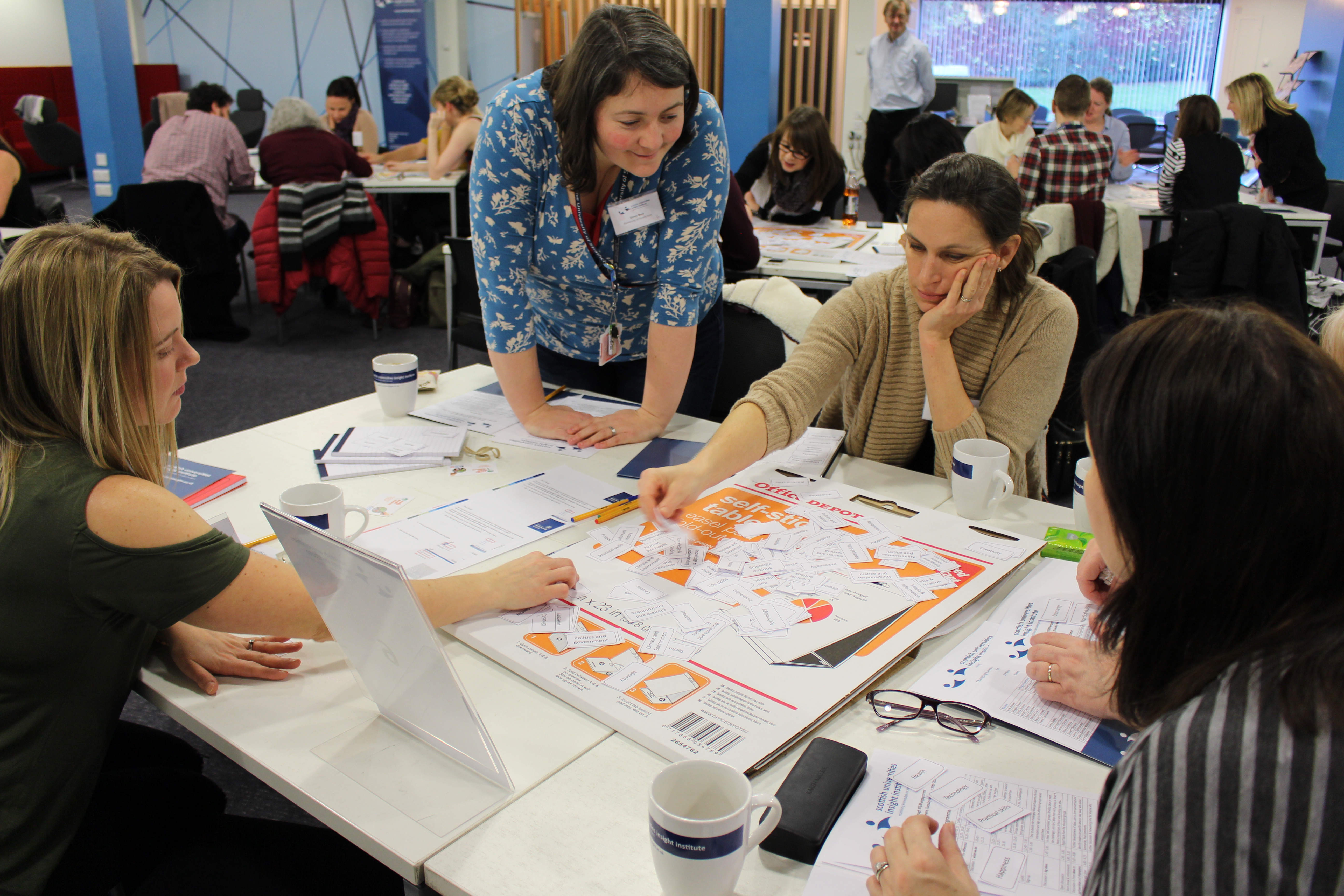 The 'Changing lives through STEM' programme consisted of three highly interactive workshops under the broad theme of exploring how better engagement between university-based STEM researchers and families, children, schools, teachers and industry could help address major social challenges. Each workshop took as its specific theme one particular challenge: workshop 1 focussed on early years education, workshop 2 on addressing poverty and inequality, and workshop 3 looked at international and industry perspectives and opportunities.
The 'Changing lives through STEM' programme consisted of three highly interactive workshops under the broad theme of exploring how better engagement between university-based STEM researchers and families, children, schools, teachers and industry could help address major social challenges. Each workshop took as its specific theme one particular challenge: workshop 1 focussed on early years education, workshop 2 on addressing poverty and inequality, and workshop 3 looked at international and industry perspectives and opportunities.
While a wide range of exciting and inspired 'public engagement' STEM activity already emerges from Scottish universities, the aim of the workshop programme was to focus thinking on how STEM engagement could help address these specific and definite social challenges: going beyond 'how do we do better engagement?' and asking how STEM engagement can directly help with poverty, inequality, international development and so on.
Participants came from a very wide range of backgrounds, including teachers, researchers (both those experienced in public engagement and those new to it), charity workers, education specialists in councils and other bodies, industry engagers and others. Importantly the workshops also covered a wide geographical area, taking place respectively in Glasgow, Dundee and Edinburgh. Participants came from as far afield as the Highlands, the Borders, East Lothian and West Dunbartonshire.